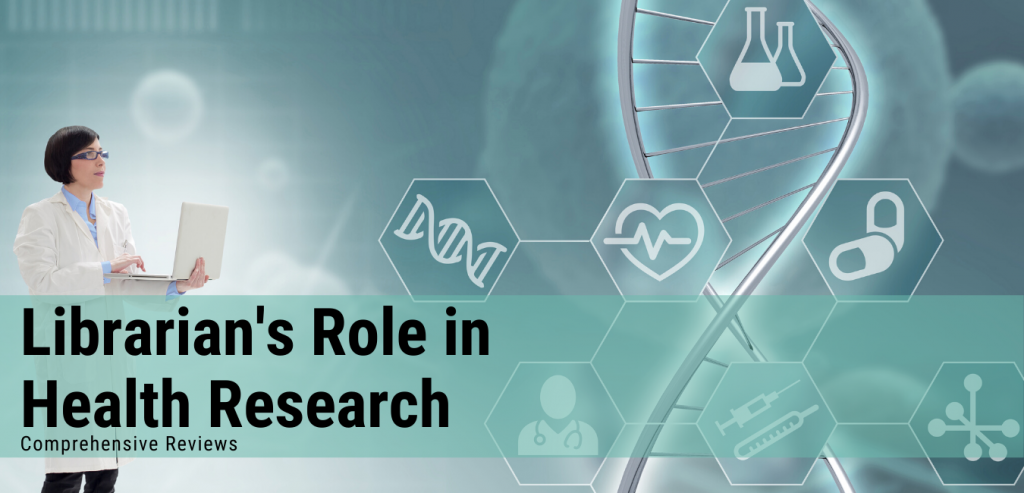This post was written by Health Sciences Librarian, Sandy Campbell with support from her colleagues at the Scott Library

There has been a collective effort among researchers to promote science and research to help society make decisions as we navigate this pandemic. Perhaps, you follow “Science Up First” on Twitter and have seen this action in real-time. Shedding some light on the research process and science literacy is of benefit to society. The UAlberta MOOC, Science Literacy, helps illuminate the library’s role in research but as we sat down to write this post we thought, “What does the library’s support look like in the context of Health Sciences and COVID-19?”
Over the pandemic, UAlberta’s Health Sciences librarians have supported the creation of new evidence by collaborating on many comprehensive reviews.
What is a Comprehensive Review?
“A comprehensive review employs literature review methods that are specific and thorough to avoid any bias in the conclusions that are drawn” (Stratton, 2016). In order to avoid bias, a comprehensive review needs to be systematic in order to identify all possible relevant publications on the topic. Systematic reviews, scoping reviews and health technology assessments all fall beneath the comprehensive review umbrella.
Original evidence comes from rigorous scientific studies. There are already more than 100,000 research papers with COVID-19 in the title, and hundreds more are published daily. In the wash of new research being published about COVID-19, comprehensive reviews of the literature, pull together evidence from multiple studies about the same topic. They continue to be one way that new evidence gets rigorously evaluated and made usable for practitioners and decision makers.
Comprehensive Reviews + COVID-19
The pandemic has created demand for high-quality evidence to answer a myriad of questions. As expert searchers, Health Sciences Librarians are collaborating on studies related to PPE; the impact of air pollution combined with COVID-19; COVID-19 and pregnancy; and the impact of specific drugs on COVID-19.
The pandemic has generated many other questions that require evidence. A real-world example would be when COVID-19 restrictions required many service providers, including health professionals, to deliver their services remotely, often with no evidence base to support those activities.
Librarians are also partners in research related to identifying online misinformation. We can teach researchers how to identify fake publications, evaluate studies, publishers and websites.
Between April, 2020 and March 31, 2021, Health Sciences Librarians have collaborated on 164 comprehensive reviews across all subjects.
Are you thinking of undertaking a Comprehensive Review?
Do you need some help with planning your search? The Scott Library has an online course Introduction to Systematic Review Searching to help you learn the process. There is also a guide that discusses various forms of comprehensive review and lists many of the search tools available to UAlberta researchers.
If you want to meet with a librarian to discuss your search, use the Ask Us link on the Library home page to book a consultation.
Stratton, S.J. (2016). Comprehensive Reviews. Prehospital & Disaster Medicine, 31(4), 347-348. https://doi.org/10.1017/S1049023X16000649.
